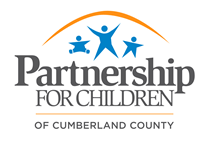The Family Focus Guide helps families and individuals in and around the Fayetteville area find resources in our community.
If you have a service-focused organization that serves families in the Fayetteville, Cumberland County area and would like to be listed, please email us at [email protected].
Established in 1964, the Action Pathways, formerlly Cumberland Community Action Program, Inc. (CCAP), strives to develop and operate projects that promote the economic and social well-being of individuals, children, families, and communities. CCAP has a long history of providing sustainable programs to the surrounding community with a visible impact throughout southeastern North Carolina, providing life-changing assistance to hundreds of thousands of individuals and families on an annual basis. CCAP is the parent organization for the Second Harvest Food Bank of Southeast North Carolina (SHFB SE NC); the Consumer Credit Counseling Services (CCCS); the Comprehensive Housing and Weatherization Programs; Self-Sufficiency Programs (ASPIRE); and Head Start. CCAP is accredited by the Council on Accreditation. For more information CCAP programs and services, visit www.ccap-inc.org or call (910) 485-6131.
Adolescent Parenting Program (APP) provides support for parenting teens up to age 17. The program works to help parenting teens remain in school, graduate from high school, and delay a second pregnancy.
Alliance Health is the (MCO) Managed Care Organization for behavioral healthcare for citizens of Cumberland, Durham, Johnston and Wake Counties. Our goal is to assist with access to services and resources for Mental Health, Intellectual/Developmental Disabilities and Substance Use Disorder Services. When experiencing a mental health or substance use disorder issue or crisis, you can call our 24-hour Access and Information Line for assistance. Call (800)510-9132
Address: Home office – 5200 W. Paramount Parkway, Morrisville, NC 27560
Cumberland office – 711 Executive Place, Fayetteville, NC 28305
Johnston office – 521 N. Brightleaf Blvd., Smithfield, NC 27577
Phone: All offices – 919-651-8401
Website: www.AllianceHealthPlan.org
Hours of Operation: Monday-Friday 8:30AM-5:15PM
Alliance Access and Information Line:
Answered by Qualified Professionals 24 hours a day, 7 days a week, and 365 days a year.
Telephone screenings and enrollment of individuals for MH/SUD/IDD Services.
Information on community resources and services for behavioral health.
Crisis intervention by telephone or arrangements for emergency face-to face assessment
Referral for services, by choice, to Alliance’s local network of providers
Subject Categories:, System of Care, Care Review, Traumatic Brain Injury, Crisis and Assessment Services, Alliance for Action on Opioids, (AllianceForAction.org), Reaching Out and Connecting to Care, Adult and Youth Mental Health First Aid Training, Housing Resources: A Foundation for Recovery, Alliance Consumer and Family Advisory Committee (CFAC), Individual Living Initiatives, Transition to Community Living (TCLI)
Programs available are: Information Referral, Exceptional Family Member, Employment Readiness, Family Advocacy, New Parent Support, Sexual Assault Assistance, Victim Advocacy Hotline and Information, Domestic Violence Prevention Assistance, Financial Readiness and Army Emergency Relief, Multi-Component Family Support Network, Multicultural Readiness, Relocation Services, Mobilization & Deployment Readiness, and Volunteer Services.
This group consists of parents, caregivers, and professionals of newly diagnosed and/or preschool and elementary age children with autism.The Autism Breakfast Club (ABC) Support Group will meet on the 1st & 3rd Wednesday of every month at 9:30 a.m. at the PFC Resource Center, Room 414. This group is for parents of children 12 years old and younger. This group is recommended for parents of ages pre-school - elementary with autism. For more information about Autism Breakfast Club, contact us.
Offers support and direct services for families of individuals with autism. Provides parent education workshops (call for availability), support groups, resource & referral, conference scholarships, summer developmental day camp, teacher grants, newsletter, holiday classroom donations.
For over 40 years, the Autism Society of North Carolina (ASNC) has worked to address areas of need and expand services for the autism community in North Carolina. ASNC is a statewide organization, supporting North Carolinians affected by autism. Our organization works to directly improve the lives of individuals and families affected by autism. We are service driven, with three strategic priorities: advocacy, training and education, and direct services.
8:30AM - 5:00PM
Provides family foster care services for children from birth to 18-year-old and facilitates adoptions for children whose parental rights have been terminated.
Our goal is to improve the quality of every life we touch. To achieve that, our Fayetteville doctors, surgeons and staff are committed to excellence in every aspect of the healthcare process. Our values of patient-centeredness, integrity, innovation, teamwork, diversity and accountability help us create a better experience for every patient, every time.
Joining hands with community partners we provide a safe and child-friendly Center that supports the prevention, investigation and prosecution of child abuse. We provide forensic interviewing services, and victim family advocacy to referred clients. We provide prevention programs to professionals and the community at-large such as
Annual Community Prevention Breakfast
Community Pinwheel Campaign
Human Trafficking Awareness Forum
Launching Hope
Partner in Prevention (PIP)
Professional Educational Trainings for Child Abuse Investigators
Stewards of Children Training



